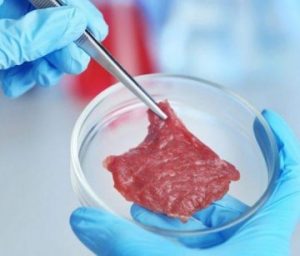Threats to global food systems and agriculture have come to the fore since the COVID-19 pandemic disrupted regional value chains, heightening awareness about the importance of public health and regulation of new scientific techniques.
For the Middle East in particular, the crisis has been a wake-up call for policymakers acutely aware they have fallen behind in the food sciences — a gap that Saudi Arabia and the UAE are now hopeful they can close.
“Food science is definitely something that’s missing here,” Prince Khaled bin Alwaleed bin Talal Al-Saud, founder and CEO of KBW Ventures, said during a recent virtual panel discussion on “The Future of Food: New Tastes, New Priorities, New Technologies.”
“We’ve voiced it a bunch of times and we are actually working with the UAE government to establish some sort of ecosystem to develop that.”
The panel discussion, organized as part of Abu Dhabi Sustainability Week (Jan. 18-21), examined how the world’s food needs have evolved over recent decades from hunger prevention to tackling obesity, and how they must adapt to face new realities.
“Fifty years ago, food science was created for food safety. It was not created for food health,” Gabrielle Rubenstein, co-founder and chief executive of the US private equity firm Manna Tree, told the panel.
“They were just trying to feed the world and mass produce, but we didn’t know that it would cause cancer or obesity.”
Today, the cost of treating chronic diseases caused by obesity in the US is equivalent to roughly 9 percent of its gross domestic product (GDP), while 70 percent of deaths are caused by lifestyles linked to poor diet.
Solutions could lie in the new scientific innovations led by start-ups. The missing ingredient, according to Rubenstein, is scalability. “This is something that we all need to work on together,” she said. “The only way we can do that is by scaling innovation knowledge and research. It’s not necessarily about getting food into the hands of the country — what’s totally missing is knowledge in innovation.”
Universities in the UAE, for instance, currently do not offer PhDs in food science, leaving regional startups whose goal is to create the foods of the future at a disadvantage. Rubenstein’s company wants to change that. “Let’s take our scholar model and give this to you so that the next generation are food scientists,” she said.]
One interesting takeaway from the pandemic is the shift in consumer preferences towards healthier and more sustainably produced food. Experts believe technology and regulations will have to adapt quickly to respond to these changing demands.
“We are going through what is probably the most challenging time we have gone through in the last 20 years,” Prince Khaled said. “And from my point of view, it is the most important thing that has happened to us because it has shifted people’s attention towards what their priorities are.”
Responding to these new demands, retailers are already allocating more shelf space to the likes of Beyond Meat, Impossible Foods and other plant-based alternatives as shoppers cut back on animal products.




